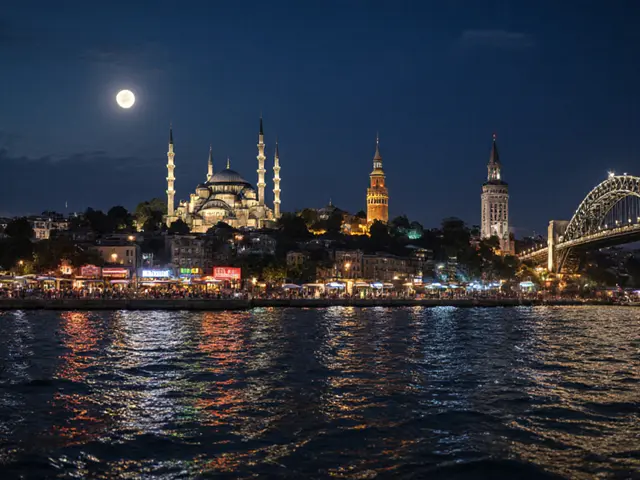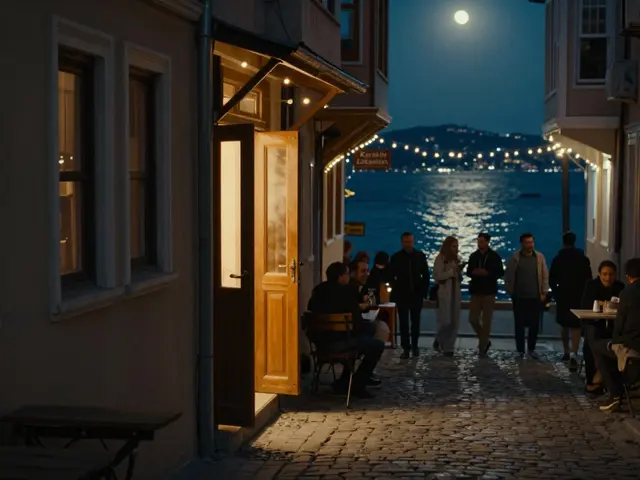Istanbul's Nightlife: A Celebration of Diversity and Inclusivity
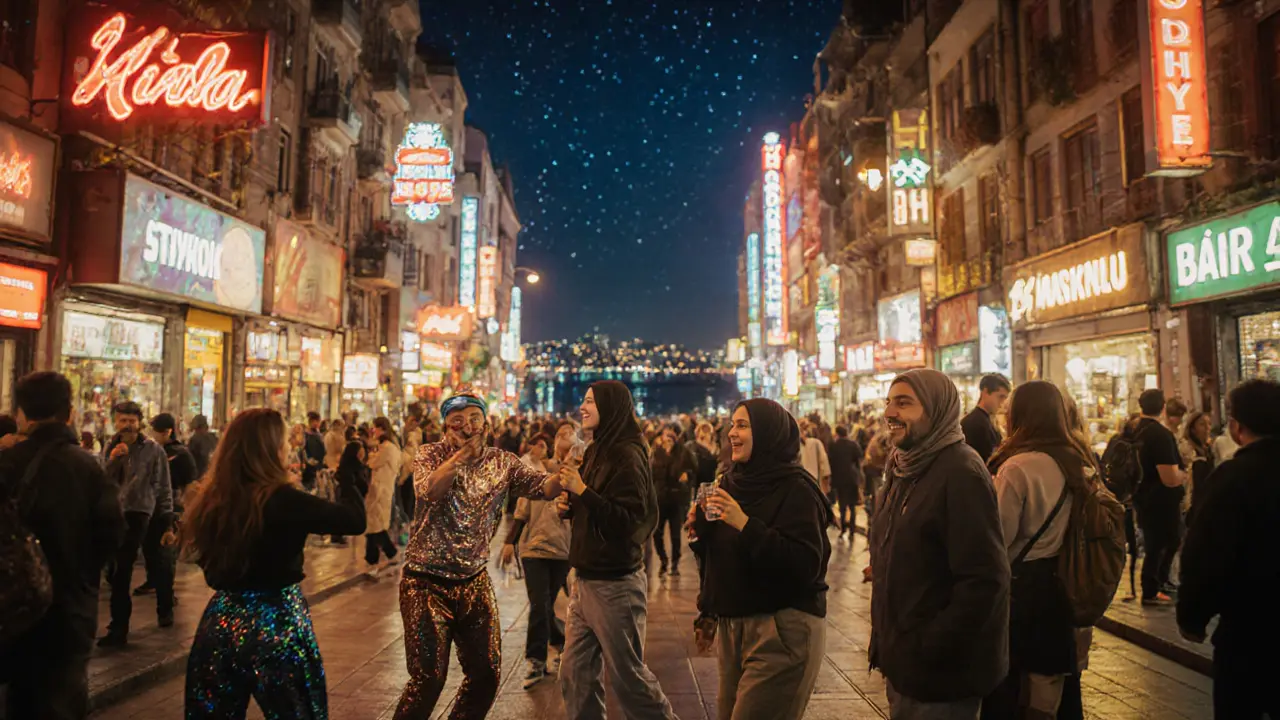
When the sun sets over the Bosphorus, Istanbul doesn’t just light up-it explodes. From hidden rooftop bars in Beyoğlu to underground techno dens in Kadıköy, the city’s nightlife isn’t just about dancing or drinking. It’s about belonging. In a place where East meets West, tradition meets rebellion, and faith coexists with freedom, Istanbul’s after-dark scene has become one of the most inclusive in the world. You won’t find a single type of crowd here. You’ll find artists, refugees, students, expats, queer communities, and grandmothers who still dance at midnight.
Where the Streets Come Alive After Dark
Start in Beyoğlu, the beating heart of Istanbul’s nightlife. İstiklal Avenue is packed every night, but it’s the side streets that tell the real story. Walk down Çiçek Pasajı and you’ll find old-school meyhanes serving raki and meze to locals who’ve been coming for decades. Turn left onto Cihangir Street and you’re in a quiet enclave where queer-friendly cafés double as art galleries. No one asks where you’re from. No one cares if you’re dressed up or in sweatpants. The only rule? Be kind.At Bar 1907, a converted Ottoman mansion, the DJ spins everything from Turkish folk remixes to Detroit techno. The crowd? A mix of Turkish women in headscarves dancing next to non-binary performers in glitter. A 2024 survey by Istanbul Cultural Observatory found that 78% of nightlife visitors in the city’s top 20 venues reported feeling safe and accepted regardless of gender, sexual orientation, or religion. That’s not accidental. It’s intentional.
The Queer Scene That Refused to Be Silenced
Istanbul’s LGBTQ+ community has faced legal pressure, police raids, and public hostility for years. Yet, its nightlife thrives. In 2023, after the city banned Pride marches for the ninth straight year, activists moved the celebration indoors. Bars like Reina and Club 19 became safe havens. Reina, perched on the Asian side, hosts weekly drag shows where Turkish drag queens perform in traditional kaftans fused with neon bodysuits. Club 19, tucked behind a laundry shop in Karaköy, plays nothing but queer anthems from the 90s to today-and no one gets kicked out for being too loud, too proud, or too different.These spaces don’t just tolerate diversity-they celebrate it. Trans women run the soundboards. Non-binary bartenders mix cocktails named after poets like Nazım Hikmet. The bouncers? They’re trained to spot microaggressions before they start. One regular told me, "In Istanbul, you don’t have to hide who you are to have a good night. That’s rare anywhere."
Music That Bridges Generations and Borders
Istanbul’s music scene is a living archive. In the 1980s, Turkish rock bands mixed Western guitar riffs with bağlama melodies. Today, that fusion lives on in clubs like Aslancık in Nişantaşı, where a 65-year-old jazz pianist plays alongside a 22-year-old Kurdish electronic producer. Their set ends with a traditional Sufi drum loop layered under a house beat. People don’t clap because it’s trendy-they clap because it moves them.On the Asian side, Yeni Bahçe in Kadıköy hosts monthly "World Nights," where DJs from Syria, Iran, Somalia, and Azerbaijan spin tracks from their homelands. You’ll hear Yemeni folk songs next to Turkish pop remixes. The crowd? Mostly locals under 30. They’ve grown up with streaming, but they still show up to dance with strangers who speak a different language. That’s the magic of Istanbul: music doesn’t need translation.
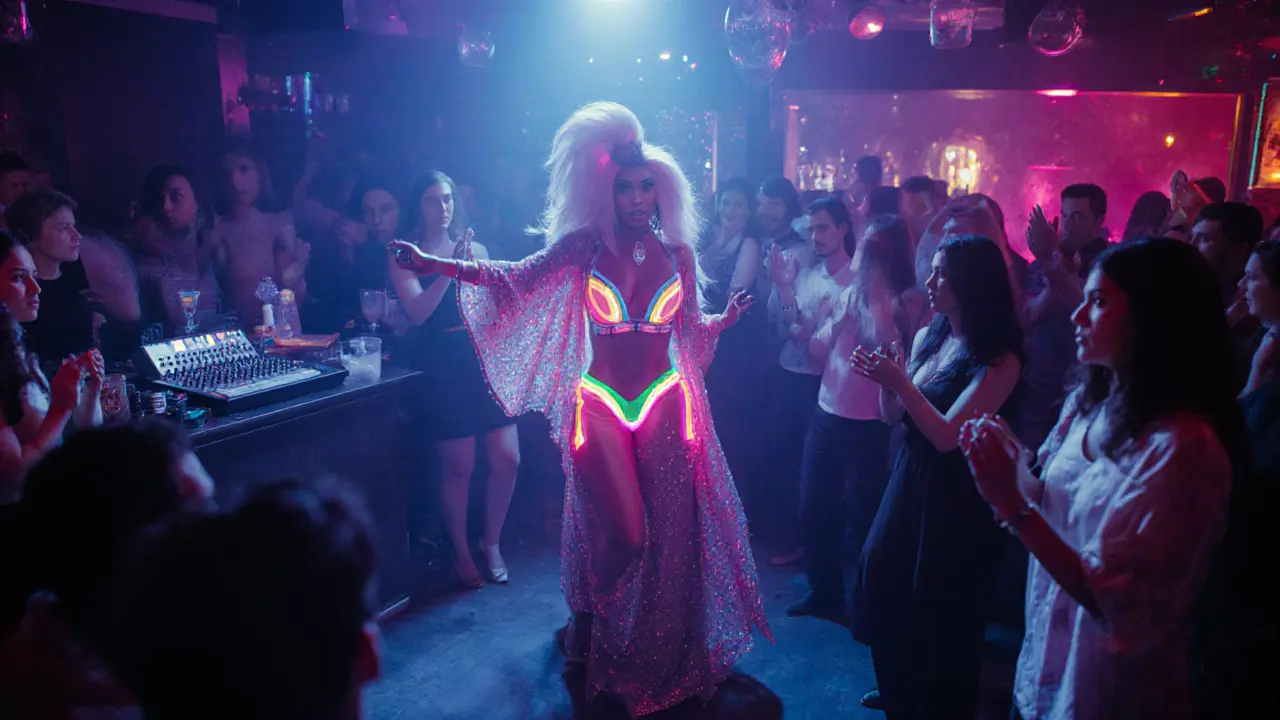
Food, Drink, and the Art of Late-Night Connection
Nightlife isn’t just about clubs. It’s about the 3 a.m. kebab shop where the owner knows your name. It’s about the 24-hour çay bahçesi (tea garden) in Üsküdar where elderly men play backgammon while young women debate philosophy. It’s about the hidden speakeasy behind a bookshelf in Cihangir that serves homemade raki with fig jam and smoked sea salt.At Mezze Mezze, a small bar in Galata, the menu changes daily based on what the chef finds at the market. One night, it’s Syrian za’atar flatbread. The next, it’s Armenian dolma with pomegranate molasses. No one asks if you’re "authentic" enough to be there. You just order, sit down, and start talking to the person next to you. That’s the unspoken rule: hospitality isn’t performance here-it’s practice.
Why This Matters More Than Ever
In a world where cities are becoming more homogenized-where chain bars and corporate clubs erase local character-Istanbul’s nightlife stands out because it’s messy, loud, and real. It doesn’t market itself as "inclusive." It just is. There are no VIP sections that exclude. No cover charges based on appearance. No bouncers deciding who "looks like they belong."It’s not perfect. There are still tensions. Some neighborhoods still resist change. But the energy is shifting. Young Turks are reclaiming their city’s night as a space for freedom, not just fun. Foreigners come here not because it’s trendy, but because they feel seen.
Walk into any Istanbul club after midnight and you’ll see something you won’t find in most global cities: a crowd where a Syrian refugee, a Turkish trans activist, an American expat, and a retired professor are all swaying to the same beat. No one’s asking for papers. No one’s checking IDs for gender. They’re just dancing. That’s not nightlife. That’s resistance. And it’s beautiful.
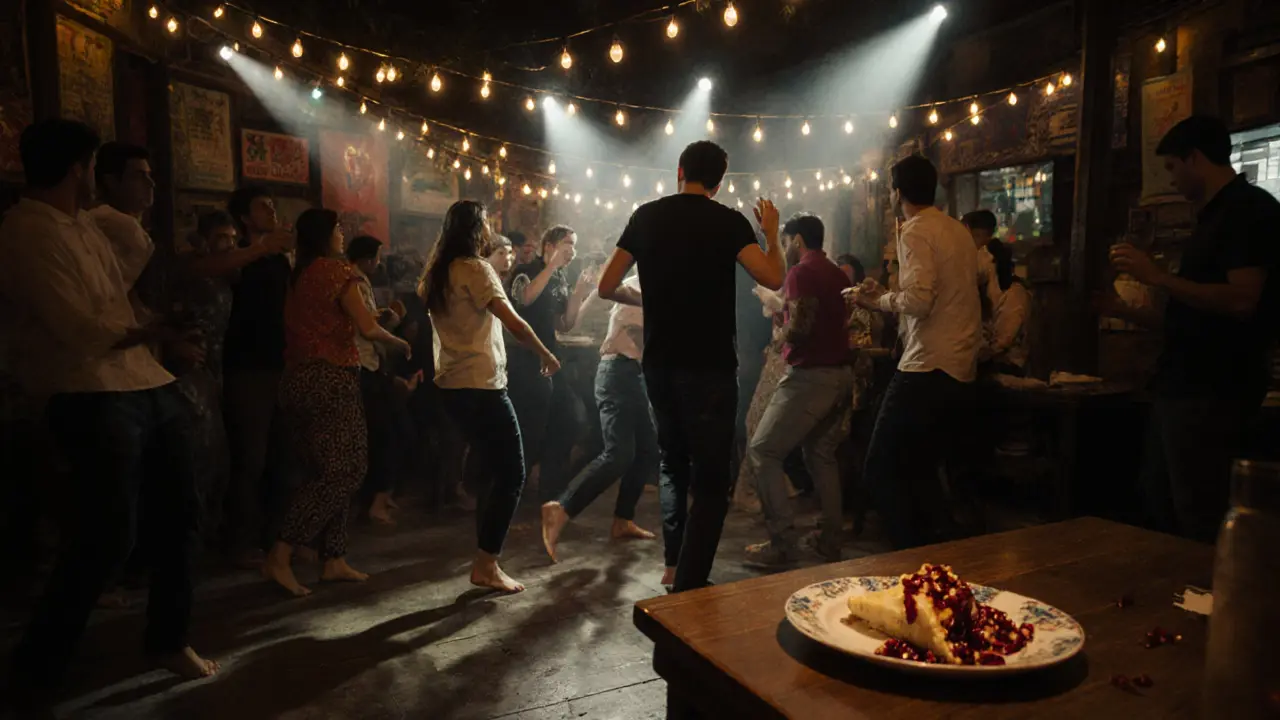
What to Expect When You Go
You won’t find a single "best" night out in Istanbul. The city doesn’t work that way. But here’s what you can count on:- Start late. Clubs don’t fill up until 1 a.m. Dinner at 9 p.m. is normal.
- Bring cash. Many small venues still don’t take cards.
- Wear what you want. No dress codes. No judgment.
- Ask questions. Locals love sharing their favorite spots. Say "Hangi yerleri önerirsin?" (Which places do you recommend?)
- Respect the space. If someone says "this is our place," don’t act like you own it.
There’s no guidebook that captures this. No Instagram filter that does it justice. You have to be there. At 2 a.m., with the call to prayer echoing over a bassline, watching strangers become friends over a shared plate of fried cheese. That’s Istanbul’s nightlife. Not a spectacle. A living, breathing, defiant act of humanity.
Is Istanbul nightlife safe for LGBTQ+ travelers?
Yes, but with awareness. While Istanbul has no legal protections for LGBTQ+ people, many nightlife venues-especially in Beyoğlu, Kadıköy, and Cihangir-are openly welcoming. Clubs like Reina and Club 19 have trained staff and zero tolerance for discrimination. Avoid public Pride displays, which are banned, but indoor spaces are generally safe. Locals often guide visitors discreetly to the right spots.
What’s the best time to visit Istanbul for nightlife?
Late spring through early fall (May to October) is ideal. The weather is mild, outdoor terraces are open, and festivals like the Istanbul Jazz Festival and Istanbul Music Festival bring extra energy. Winter nights are quieter but still vibrant-many clubs stay open year-round, and indoor venues feel cozier. Avoid major religious holidays like Ramadan, when some venues close early.
Are there any venues that cater specifically to non-Turkish speakers?
Many do. Popular spots like Reina, Aslancık, and Yeni Bahçe have international crowds and staff who speak English, German, or French. Menus often include English translations. Don’t worry about language-music, food, and dance are universal. Locals appreciate when you try a few Turkish phrases, but no one expects fluency.
Can I find vegan or vegetarian options in Istanbul nightlife spots?
Absolutely. Traditional Turkish cuisine has deep vegetarian roots. Mezze platters with hummus, eggplant dip, stuffed grape leaves, and grilled halloumi are common. Many newer bars and cafés, especially in Cihangir and Kadıköy, offer fully vegan menus. Ask for "vejeteryen" or "vegan"-most places will accommodate you without hesitation.
How do I find hidden or underground spots?
Ask locals. Walk around after 11 p.m. and follow the music. Many hidden venues have no signs-just a door with a small symbol or a buzzer. Social media isn’t reliable; most underground spots avoid online promotion. Join a local walking tour focused on alternative culture, or ask at a trusted café. Trust your instincts-if it feels welcoming, it probably is.

